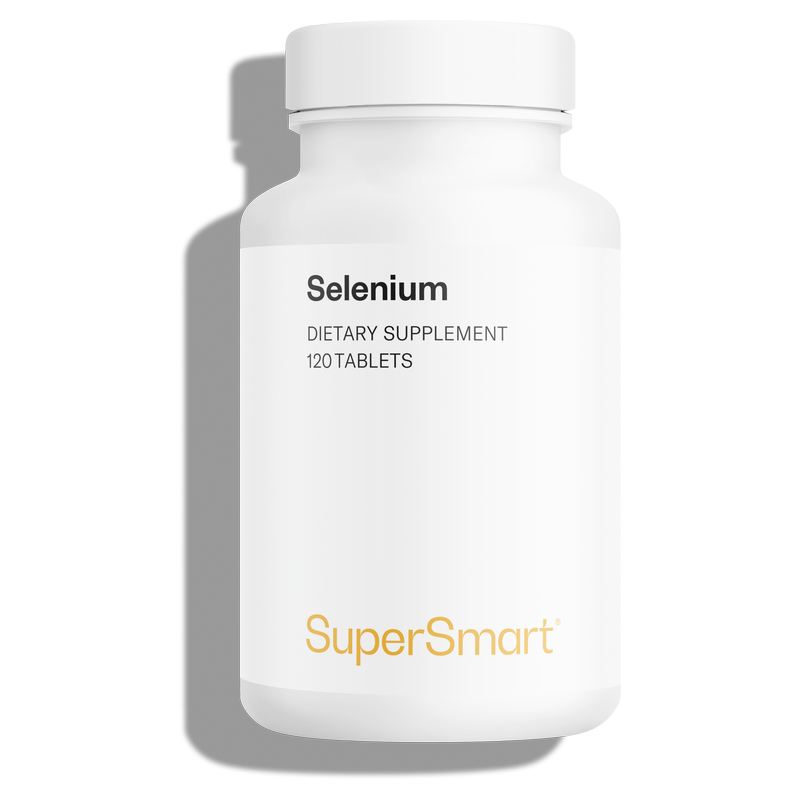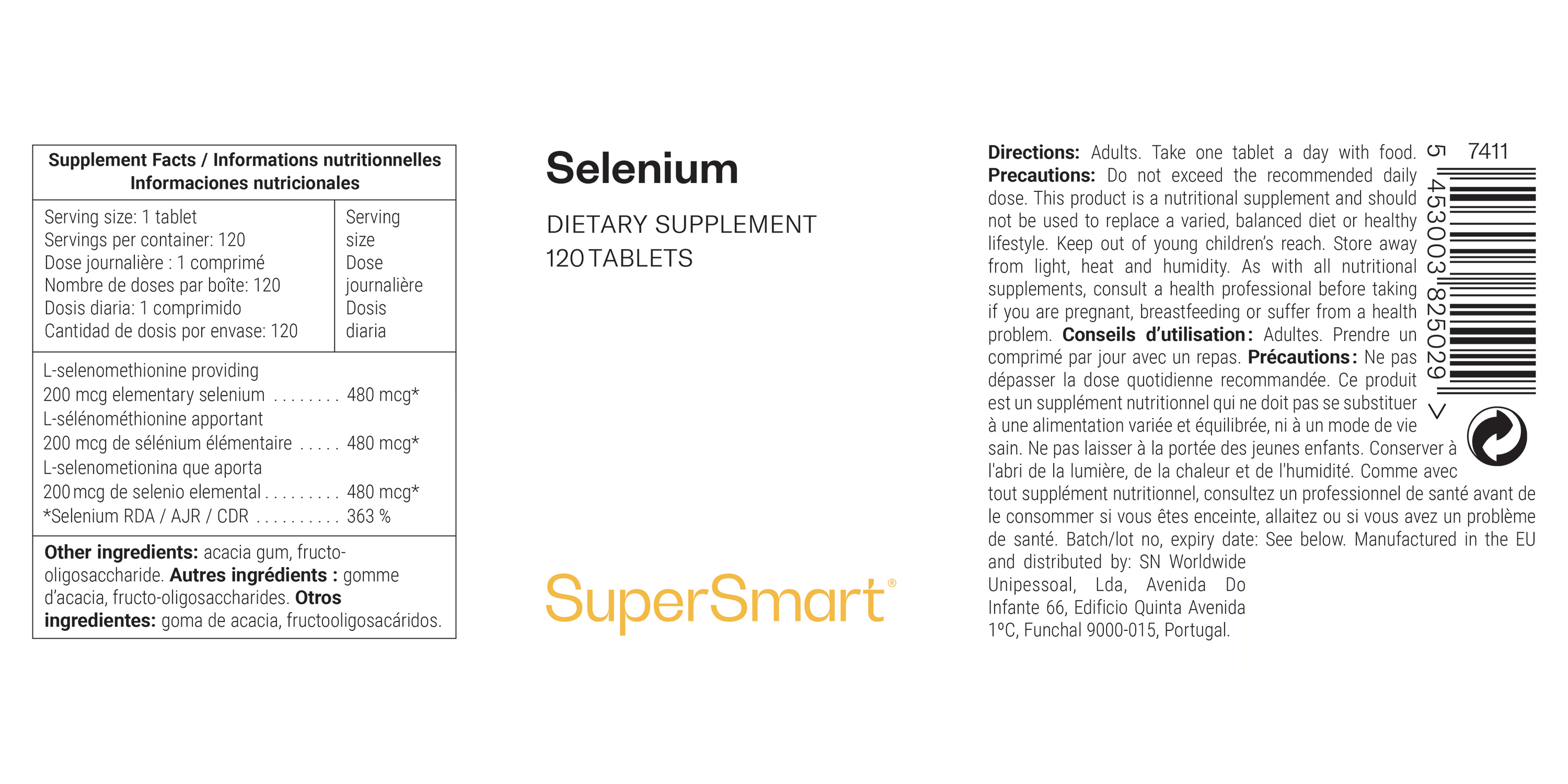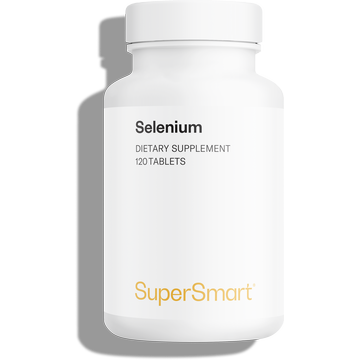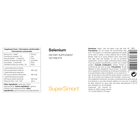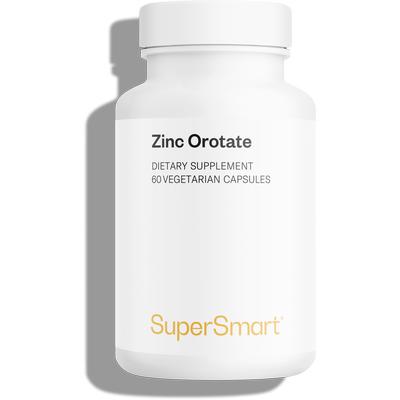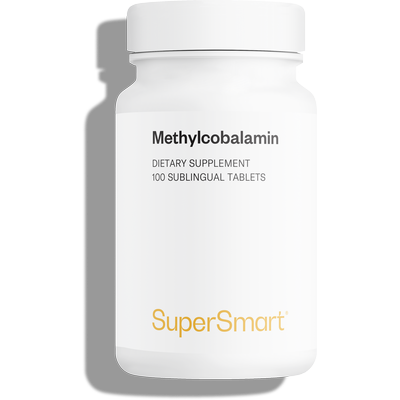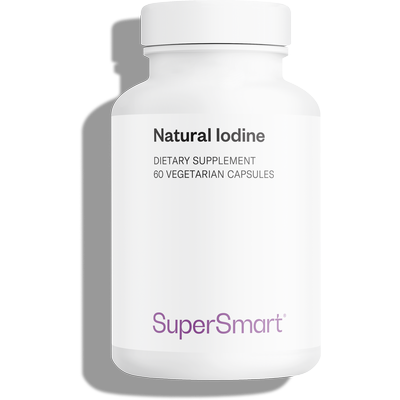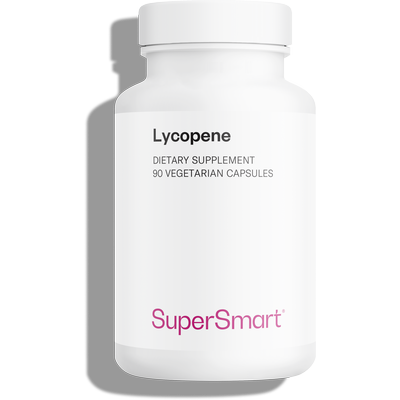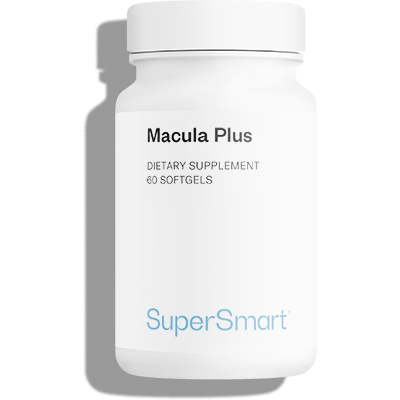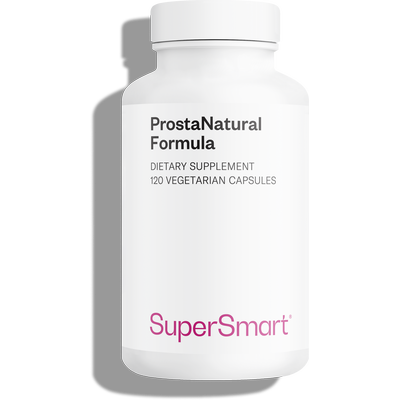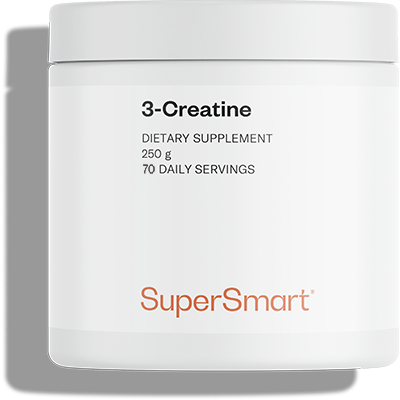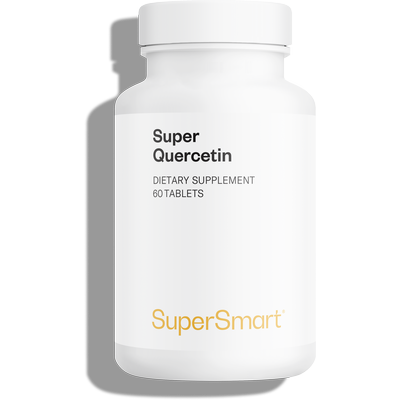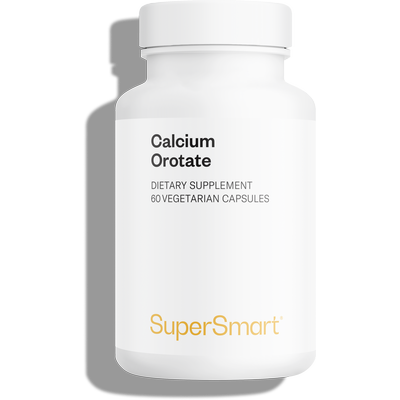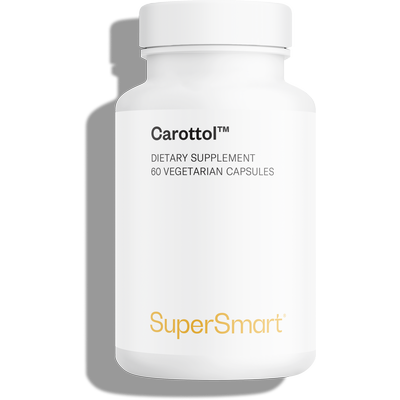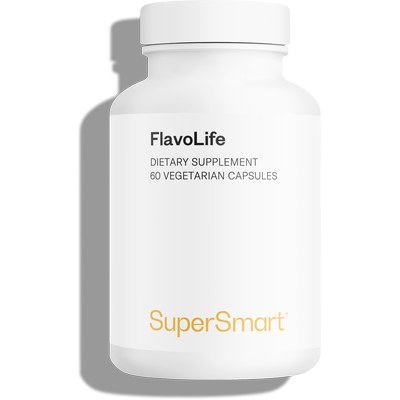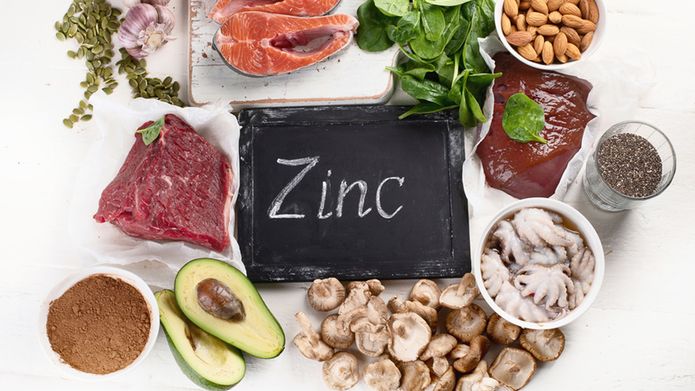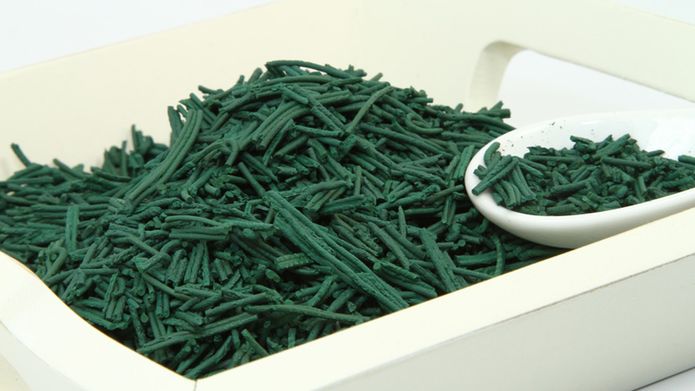Complete your selection
Selenium is a natural selenium supplement with optimal efficacy and bioavailability. Its organic form (selenomethionine) obtained from yeast extracts offers superior absorption than classic inorganic selenium supplements.
Essential to life, this trace-element plays a role in, amongst others, fighting oxidative stress, supporting normal immune function and maintaining healthy hair and nails. It thus remains a weapon of choice during periods of fatigue and convalescence.
What is selenomethionine?
Selenomethionine is the most abundant form of selenium in our diet. It’s primarily found in plant-source foods (grains, soya, brewer’s yeast …). When grown in selenium-rich soil, plants are able to capture this mineral and metabolise it into organic derivatives (1).
Chemically, selenomethionine corresponds to the selenium analogue of methionine, one of the 22 proteinogenic amino acids. In other words, methionine shares the same molecular formula as selenomethionine, but its sulphur atom is replaced by a selenium atom. This biochemical proximity means selenomethionine is able to integrate certain proteins in the body called selenoproteins. In this form, it can be durably stored in tissues, particularly muscle tissue, and released as necessary to meet the body’s needs.
The replacement of methionine by selenomethionine in the protein structure does not cause any notable change in function, and may even present some advantages. For example, compared with sulphur, selenium may offer additional protection against oxidative processes(3). In addition, during photochemical reactions, the carbon-selenium bond is more easily broken than the carbon-sulphur one: selenomethionine thus reacts better to the energy of ultraviolet light (4).
What’s the best form of selenomethionine?
First of all, it’s worth noting that organic selenium chelated with amino acids (such as selenomethionine or selenocysteine) is is better assimilated than inorganic selenium salts (such as selenite or selenium sulphide) (5). Selenomethionine displays an average absorption rate of around 90%, compared with 50%-60% for inorganic forms.
To be fully bioassimilated, a selenium supplementat needs to contain a form naturally ingested through food. The L isomer of selenomethionine, better-known as L-selenomethionine, is the form most commonly found in our diet (6). Perfectly-adapted to human metabolism, it offers superior bioavailability and produces a rapid increase in blood selenium levels(7).
What are the benefits of selenium?
According to EFSA-approved claims, selenium helps to:
- maintain normal immune system function: several studies have demonstrated the role played by selenoproteins in the activation, proliferation and differentiation of immune cells, as well as in modulating immunity(8);
- protect cells against oxidative stress: as a cofactor of glutathione peroxidase, a redox enzyme, selenium supports the neutralisation of free radicals that attack cell membranes (9). Conversely, a lack of selenium may exacerbate the toxicity of by-products of redox reactions;
- maintain normal thyroid function: the thyroid is the organ with the highest selenium content in the body. This trace-element regulates thyroid hormone production, specifically triiodothyronine (T3) (10) ;
- support normal spermatogenesis: selenium is particularly involved in the metabolism of testosterone and in sperm motility (11) ;
- maintain healthy hair and nails: as a result of its antioxidant properties, selenium helps to make the hair stronger and shinier (12), and the nails beautiful and glossy.
What is in Selenium
Any questions?
Our team of nutrition experts and scientists has the answers.
Though relatively rare in western Europe, selenium deficiency may still affect between 500 million and 1 billion people worldwide, with huge variability depending on socioeconomic status (13).
It normally presents as severe fatigue, moodiness or irritability, greater susceptibility to infections and an imbalance of the thyroid gland. In critical cases, it can cause heart muscle and joint damage.
Selenium deficiency is more common in countries with selenium-depleted soil, such as New Zealand and China. It can also occur in people receiving parenteral nutrition without added selenium.
Selenium is a trace-element integral to living things. In terms of animal-origin foods, eggs, kidneys, fish and seafood are all good sources. In the plant kingdom, it’s found at significant levels in Brazil nuts, garlic and mushrooms (15).
It’s also found in vegetables and whole grains provided they’re grown in soil with substantial selenium levels.
Though beneficial when ingested in reasonable amounts, selenium is toxic in high doses. Intakes above 1000 mcg/day cause, in particular, brittle nails, abnormally weak hair shafts, skin infections, garlicky breath, diarrhoea, vomiting and increased fatigue. Supplementing with too high a dose of selenium without prior medical advice is often the cause (14).
Providing a dose of 200mcg of selenium per tablet, the antioxidant selenium supplement Selenium is below the upper safe limit of 300mcg/day for adults set by the EFSA. Keeping to the suggested dose (of 1 tablet a day) will thus provide you with a safe, sufficient and effective intake of selenium.
By also helping to protect cells against oxidative stress, vitamin E acts symbiotically with selenium to maintain cell membranes by participating in redox reactions (16-17). Concurrent supplementation with Natural E 400, a natural-source vitamin E supplement, is thus strongly recommended.
Involved in more than 300 enzymatic reactions, zincplays a role in normal DNA synthesis and immune system function as well as in protecting cells against oxidative stress(18-19). It also helps to maintain healthy hair and nails (20). Combining Selenium with L-OptiZinc® (which contains both zinc and methionine for enhanced retention) forms a powerful and popular duo for stimulating immunity.
february 6 2026
february 4 2026
december 30 2025
bonjour pas du tout reçu
hello
not received at all
 see the translation
Translated by SuperSmart - see the original
see the translation
Translated by SuperSmart - see the original
november 30 2025
je.le.prend.depuis.peux.donc.trop.vite.pour.un.avis
I.take.it.since.can.therefore.too.quickly.for.an.opinion
 see the translation
Translated by SuperSmart - see the original
see the translation
Translated by SuperSmart - see the original
october 11 2025
En attente des résultats escomptés
Waiting for the expected results
 see the translation
Translated by SuperSmart - see the original
see the translation
Translated by SuperSmart - see the original
Need help?
You may also like
of experience
your money back
##montant## purchase

